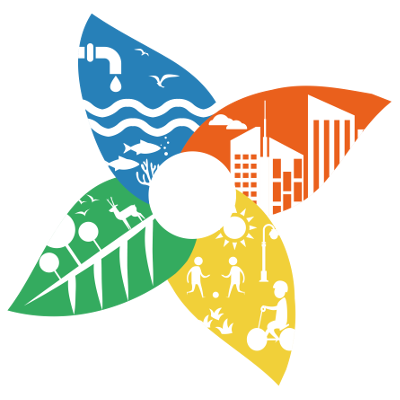In this post, I am presenting my reflections from the European conference on nature-based solutions (NBS) held in Tallinn, Estonia. The conference was arranged as part of the presidency of the Estonian republic of the Council of the European Union and hosted scientists, politicians and entrepreneurs sharing their experiences on how nature-based innovation and technologies can be implemented in different areas, and to provide input and best practice for policy development. The aim of the conference was also to “serve as an important step in popularizing NBS across Europe…and give input to the (European) Commission and other organizations to plan their future activities”.
The Estonian minister of the environment participated – as well as his Lithuanian counterpart - underlining the importance of “reconnect(ing) with nature, learn from its wisdom and use it to make our lives more resilient and sustainable”. NBS is seen as a promising way to help mitigate climate change and build resilience. However the practice of such solutions are limited, and there is need for more knowledge on how to better realize the potential.
Within the NATURVATION project, work is currently undertaken to explore and learn from 18 case study cities in Europe and outside. Being in the process of studying the first six cities, NATURVATION shared some of the early findings at the conference. The following points depict some of the challenges and opportunities associated with NBS in the case study cities:
- In pursue of denser cities to accommodate a growing population, land-use priorities become a challenge. How to maintain and improve existing green areas and provide new green/blue infrastructure in such a context?
- Commitment by local/national authorities and inclusion of NBS in wider planning processes is key in all cases – how to internalize and mainstream NBS as a general requirement in all planning processes?
- And how to finance these in an era of less public budget available?
- However, there seems to be a growing municipal interest to form and strengthen multi-stakeholder partnerships and networks, as a way to find new pathways to innovation and governance, including the issue of financing and engaging citizens. But how to maintain continuum and provide more robust and long-term business models for NBS – including maintenance costs – that go beyond the end of singular projects?
- Many of the NBS tend to happen in privileged areas – how to avoid uneven geographical distribution of NBS interventions?
- There is a risk that NBS leads to unintentional consequences such as higher prices of housing and potentially gentrification in some areas. Hence we need a better understanding of socio-economic impacts of such interventions in the city.
The theme of the conference – from innovation to common-use – implies up-scaling and mainstreaming. In my view, a first prerequisite for that is to have more practitioners – and their experiences – on board. Playing a key role in advancing NBS in cities, urban planners and local decision-makers should be included at the next European NBS conference, and in so, strengthening the links between policy, practice, research, and innovation.
Acknowledging the need to go from innovation to common-use, NATURVATION has the built-in potential to work on these borders through the Urban-regional innovation partnerships (URIPs). These may serve as platforms or arenas for exchange of knowledge, while fostering innovative ideas and co-operation that lasts - hopefully even beyond the end of the project.
You can read more about the conference, see livestreams from keynote speeches, download session presentations and posters here: https://nbs2017.eu/
Björn Wickenberg is a PhD student in Sustainable Urban Governance at the International Institute for Industrial Environmental Economics (IIIEE) at Lund University, working on the NATURVATION project.
